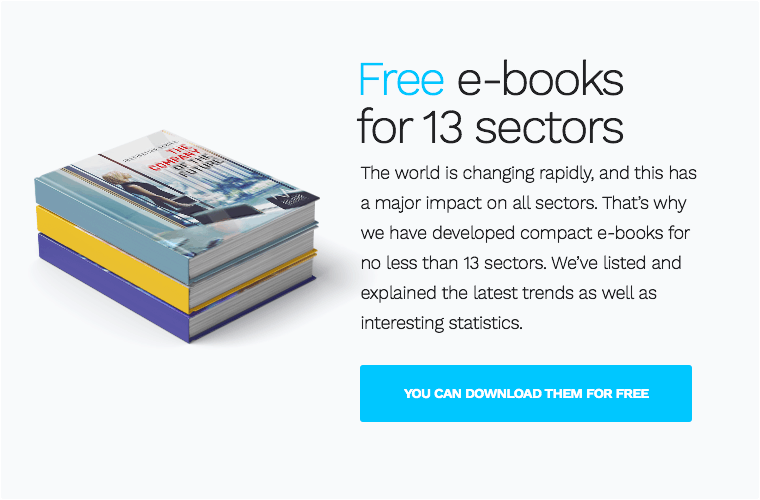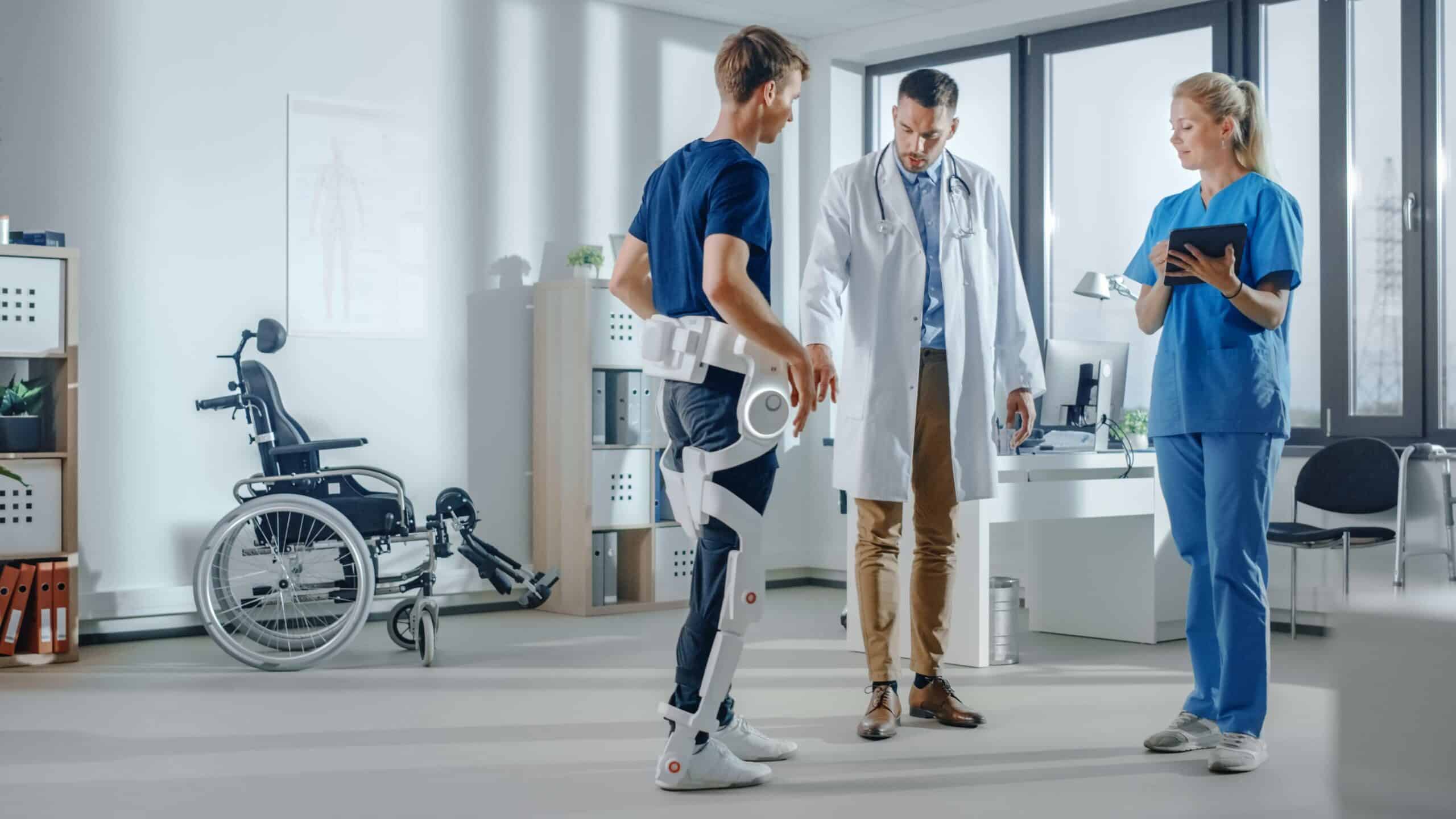Technology makes the impossible possible and everything we’ve become accustomed to will change or disappear. Think Spotify instead of the music store on the corner or Airbnb instead of a hotel. The end of the insurer is in sight, because when we can prevent illness and repair or replace products cheaply, risk will become a less important factor.
Predicting and preventing health care costs
In 2020, anyone with a (mandatory) electronic pill and DNA passport will be able to predict illnesses. The AliveCor wearable, for instance, can produce an ECG within three minutes. With this kind of technology, healthcare can become much more streamlined and customised. Major global players such as Philips and GE are working on tools that, within ten years, will replace the GP. The American insurer Oscar gives its customers discounts as well as free wearable fitness trackers if they decide to start exercising. Of course, data derived from these wearables is used to gain customer insight and improve their products and services.
Cars that don’t cause accidents
Around the year 2025, driving on autopilot will become compulsory. This will render vehicle insurance as we know it today virtually obsolete. We’ll use an autonomous car to travel from A to B. If it’s not transporting passengers, it will make itself useful delivering parcels. This will lead to a dramatic decrease in the number of cars on the road, vehicle damage and personal injuries. Policyholders who install smart systems will get discounts on their premiums. Dutch disrupter of the year 2015, ‘Fairzekering’ (Fairsurance), monitors your driving behaviour via a special ‘plug’, called the Chipin. Well-behaved drivers receive 35% back on their premiums. With the emergence of this type of technology, combined with big data and the IoT, revenue from vehicle insurance will eventually dry up and many insurers won’t survive this development.
What’s smart doesn’t break
In the future, objects and components will no longer break or they will be automatically replaced. ‘Things’ will share all kinds of data around operation, speed and temperature with other devices and systems. Smart algorithms then determine when a component needs to be replaced. Also, we will soon see self-repairing materials. Think smart bacteria or nanobots that automatically repair damage to buildings. From an insurance perspective, these developments translate to significant reductions in risk and cost.
Why insure when we can print?
The emergence of 3D and 4D printers is the most significant development of the past five years. In the future, we’ll print almost anything; bicycles, car parts, organs and furniture. This means that costs for large production plants and transportation systems will drop significantly. The ‘middleman’ will also cease to exist as we’ll order the model to be printed directly from the designer or we’ll print it ourselves. Why insure if replacement or repair is easy and costs next to nothing?
A smooth online experience
The policyholder of today and in the future uses his computer, iPad or iPhone to access real-time information and wants nothing more to do with call centres. To meet this demand, insurers have created beautiful websites and smooth claims procedures. A good example is FinTech and the many startups that have created apps for payments, insurance, claims procedures and many other tasks and processes. FriendlyScore’s algorithms allow quick insight into social media behaviour which enables insurers to attach a score to the risk profile of an applicant. In the future, not only data from autonomous cars, smart homes and buildings will be added to risk profiles; information from our electronic pills and FitBit-like devices will start playing increasingly important roles in risk assessment as well.
Is Google the new insurer?
The notorious ‘small print’ and non-transparent processes within the insurance industry have given insurers a bad name and since Google is already an important part of our lives, it would make sense for Google Wallet to offer insurance. Or Facebook, Amazon or PayPal for that matter. Indeed, all of these companies are busy developing better, more flexible and cheaper insurance offerings. In the future, we may be able to get insurance as easily as we get a Spotify, Dropbox or Netflix account. Google and Ford launching a self-driving electric car, including insurance and charger is not an unlikely future scenario. At a low, flexible premium of course, based on the driver’s health, driving style and car usage.
‘Block Chain’ instead of ‘back office’
Insurance companies’ costs consist of what happens in the back office. Claim settlement is complex and includes appraisals, filling out forms and making phone calls. The ‘block chain’, the central system behind the bitcoin, is a digital database and ledger where ownership and transactions are safely recorded. Many banks and insurers are already experimenting with this technology. Expectations are that this technology can lead to significant cost reductions. It will however also result in many job losses.
What’s the insurer’s next step?
A new culture with external, rather than internal input and new technology will need to be created. Insurers should start partnering or collaborating with relevant, disruptive and inspiring startups. The insurer of the future is a ‘data company’ and will need to operate accordingly. By recruiting employees from industries that are already much more advanced with the intelligent application of data, new knowledge can be acquired and implemented.








